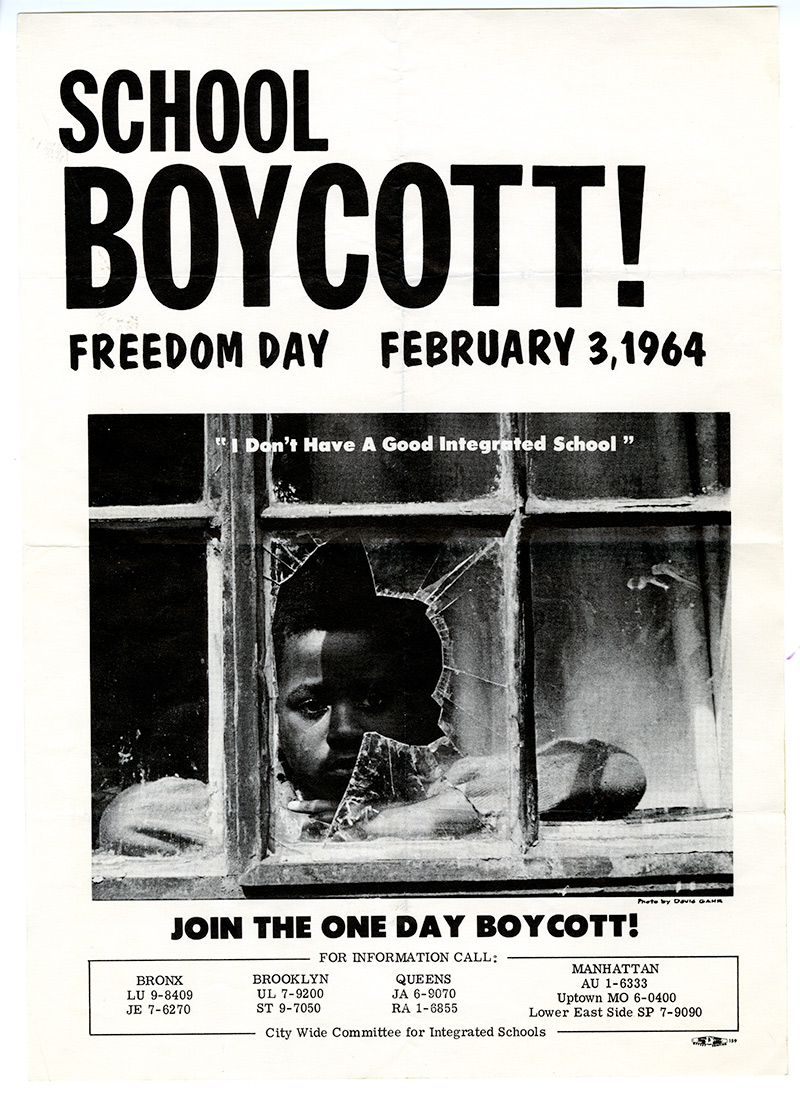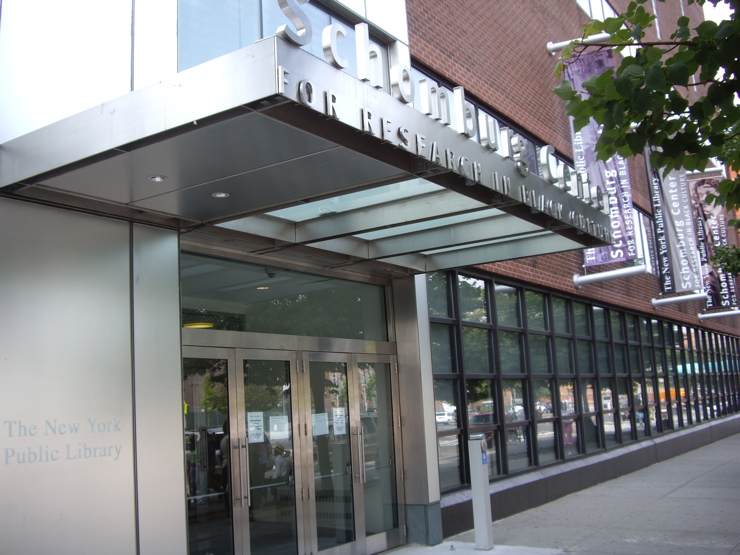In late July, Ansley T. Erickson, Associate Professor of History & Education Policy and co-director of Teachers College’s Center on History and Education, and Brian Jones, Associate Director of Education at the New York Public Library’s Schomburg Center for Research in Black Culture, will lead a two-week workshop for teachers titled “Harlem’s Education Movements: Changing the Civil Rights Narrative.”
Interested educators can read more and apply for the institute before March 1, 2020.
The workshop, which is funded by the National Endowment for the Humanities and will be offered at the Schomburg Center, in Harlem, draws in part from the recent book, Educating Harlem: A Century of Schooling and Resistance in a Black Community, which Erickson coedited with former TC faculty member Ernest Morrell (now at the University of Notre Dame). But where the book is devoted to describing the variety of approaches that Harlemites themselves took to improve education in their local schools during the 20th century, the workshop also aims to debunk the notion that the American Civil Rights movement was a Southern phenomenon.
“All of the elements of the Civil Rights movement -- the use of litigation to challenge inequity, the centrality of education to the struggle -- are well illustrated in Harlem,” Erickson says. “Hopefully this will result in school children getting Civil Rights stories that are inclusive of the North. Also, we present a civil rights story with many leaders who were women and from a variety of class positions.”
Hopefully this will result in school children getting Civil Rights stories that are inclusive of the North. Also, we present a civil rights story with many leaders who were women and from a variety of class positions.
—Ansley T. Erickson
The workshop will be offered to teachers in grades six through 12, as well as to people working in libraries or museums. A typical day during the workshop will include guest lectures — including by some of the authors of chapters in Educating Harlem — and visits to historic education sites in Harlem, such as I.S. 201, which, more than half a century ago, sat empty for the first 10 days of its existence during parent protests for community control and against segregation. The workshop participants will also have access to primary source materials in the Schomburg Center’s archival collections.

SITES OF ACTION Participants in the workshop led by Erickson and Jones will visit locations in Harlem where school protests and other civic actions occurred. (Photo courtesy Ansley T. Erickson)
“From the papers of activist educators like Ella Baker, Preston Wilcox, and Babette Edwards, to the records of schools like Wadleigh and The Modern School, the Schomburg Center’s archives are uniquely equipped to help teachers learn new stories about educational activism in Harlem,” says Jones. “The struggle to document, write and teach black history is at the heart of the Schomburg Center’s mission and its origins. Beginning with working class intellectuals like Arturo Alfonso Schomburg, the history of this institution is an important part of the broader story of twentieth century educational activism in Harlem.”
Teachers College History and Education doctoral candidate Matt Kautz and MA student Khadijah Akeem are helping developing the institute alongside Erickson, Jones, and a group of esteemed visiting scholars from around the country.
“Children are in schools for a huge portion of their young lives,” Erickson says. “Yet we don’t use their familiarity with these institutions to think about history. So we want to make struggles for educational justice a starting point for getting young people to think historically and to imagine how they can make change in the world.”
